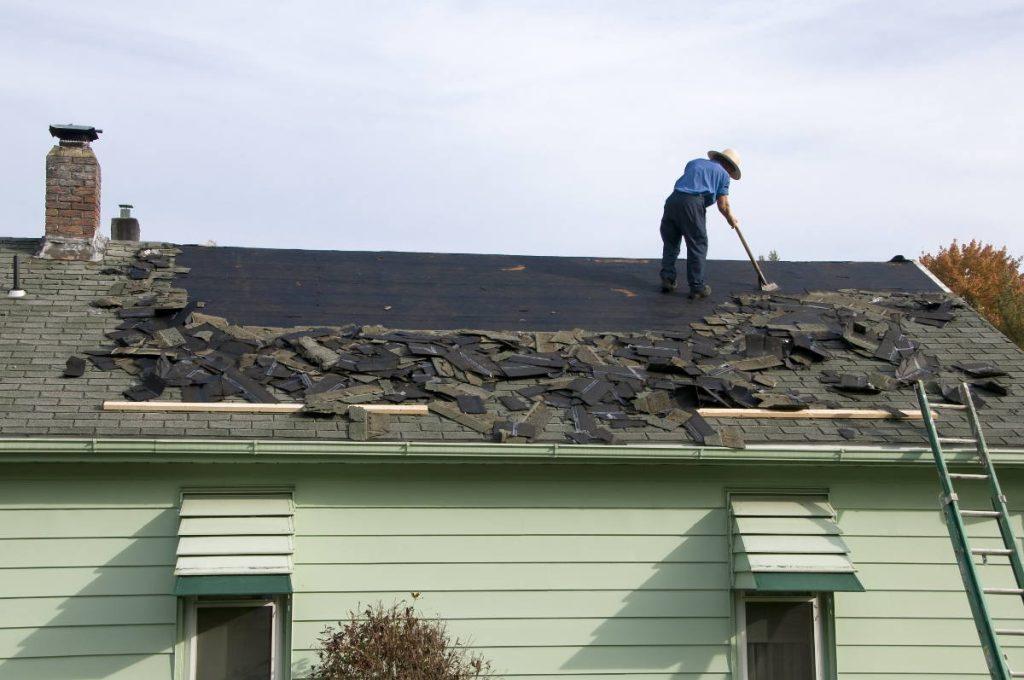When it comes to home maintenance, one of the most critical yet often neglected aspects is the roof. A well-maintained roof protects your home from the elements, ensures your family’s safety, and can even improve your home’s energy efficiency. But, like everything else, roofs have a lifespan, and eventually, they need to be replaced.

Why Replace Your Roof?
Before delving into how long it takes to replace a roof, let’s briefly discuss why you might need a roof replacement. Several factors can contribute to the deterioration of your roof:
- Age: The lifespan of a roof varies depending on the materials used, but most roofs last anywhere from 20 to 50 years. If your roof is approaching the end of its life, it might be time for a replacement.
- Weather Damage: Harsh weather conditions, such as heavy rain, hail, snow, or strong winds, can take a toll on your roof. Over time, this can lead to leaks, damaged shingles, and the need for a replacement.
- Poor Installation: If your roof was poorly installed, it can develop problems prematurely. Signs of this include uneven or sagging sections, loose shingles, or visible gaps.
- Mold or Algae Growth: In humid climates, mold and algae growth can be a significant issue. While this may not always necessitate a full replacement, it’s a good idea to address the problem promptly.
- Energy Efficiency: An old or poorly insulated roof can lead to higher energy bills. Replacing it with more energy-efficient materials can help you save money in the long run.
The Roof Replacement Process
Roof replacement is a complex process that involves several steps. Here’s an overview of what typically happens:
1. Inspection and Assessment:
Before starting any work, a roofing contractor will inspect your existing roof. They’ll look for signs of damage, assess the underlying structure, and determine the best course of action. This inspection helps to identify any potential issues that need to be addressed during the replacement.
2. Material Selection:
Once the assessment is complete, you’ll need to choose the materials for your new roof. There are various options available, including asphalt shingles, metal roofing, tile, and more. Your choice will impact both the cost and the time required for the replacement.
3. Permits and Regulations:
In some areas, you may need to obtain permits before replacing your roof. Your roofing contractor will typically handle this process, ensuring that everything is in compliance with local building codes.
4. Tear-off:
The old roofing materials must be removed before the new roof can be installed. This can be a time-consuming process, especially if there are multiple layers of old shingles to remove.
5. Repairs:
Once the old materials are removed, any underlying damage, such as rotted wood or structural issues, will need to be repaired.
6. Installation:
The installation of the new roofing materials is a crucial step. The time required for this phase depends on various factors, including the size and complexity of your roof and the type of materials being used.
7. Clean-Up:
After the installation is complete, the job site needs to be thoroughly cleaned up. This includes removing debris, nails, and any other materials.
How Long Does It Take?
The duration of a roof replacement can vary significantly. On average, for a typical residential roof, the entire process may take anywhere from a few days to a couple of weeks. Here are some factors that can influence the timeline:
- Size and Complexity: Larger or more complex roofs will naturally take longer to replace.
- Weather: Inclement weather can cause delays, especially during the tear-off and installation phases.
- Material Availability: Some roofing materials may have longer lead times, affecting the schedule.
- Contractor Efficiency: Experienced roofing contractors can often complete the job more quickly.
Conclusion
In conclusion, the time it takes to replace a roof depends on several factors, including the size and complexity of your roof, the type of materials being used, and external factors like weather. To get a precise estimate, it’s best to consult with a reputable roofing contractor who can assess your specific situation and provide you with a detailed timeline for your roof replacement project. Remember that while the process may take some time, a new roof is a valuable investment in the long-term safety and comfort of your home.



Leave a Reply